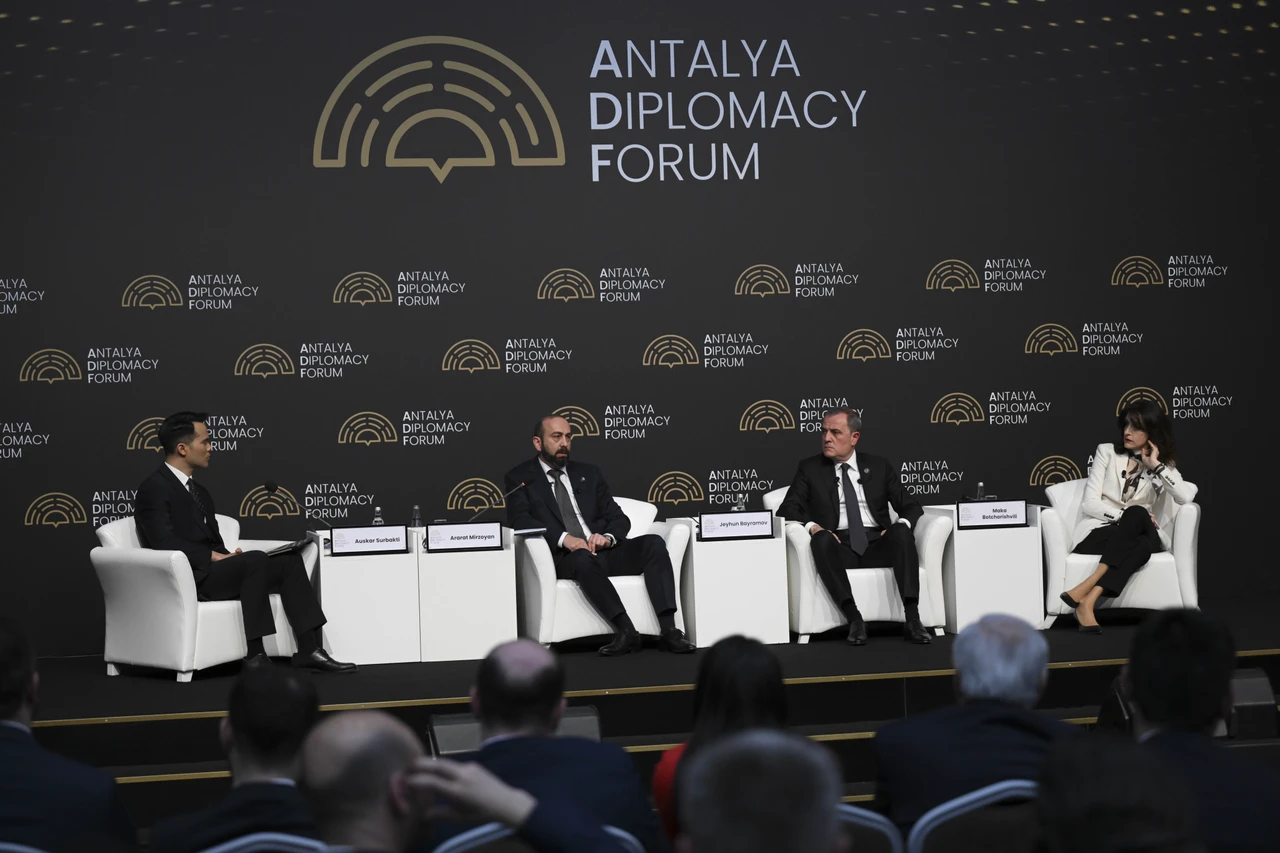Iran, US begin indirect nuclear talks in Oman as tensions rise
 Iran's supreme leader Ali Khamenei (L) speaks after casting his ballot during the runoff presidential election in Tehran on July 5, 2024, and US President Donald Trump (R) waves at supporters at the end of a campaign rally at PPG Paints Arena in Pittsburgh, Pennsylvania on Nov.4, 2024. (AFP Photo)
Iran's supreme leader Ali Khamenei (L) speaks after casting his ballot during the runoff presidential election in Tehran on July 5, 2024, and US President Donald Trump (R) waves at supporters at the end of a campaign rally at PPG Paints Arena in Pittsburgh, Pennsylvania on Nov.4, 2024. (AFP Photo)
Indirect negotiations between Iran and the United States over Tehran’s nuclear program have begun in Oman, as confirmed by Iranian officials on Saturday, marking the first diplomatic engagement between the two nations since Donald Trump returned to the White House.
“Indirect talks are underway between Iran’s Foreign Minister Abbas Araghchi and US Special Representative for the Middle East Steve Witkoff in the Omani capital,” Iranian Foreign Ministry spokesman Esmaeil Baghaei announced in a statement posted on X.
According to Baghaei, the delegations are seated in separate rooms with Omani Foreign Minister Badr Albusaidi shuttling between them to relay messages, a diplomatic arrangement that underscores the deep distrust that continues to define US-Iran relations.
Iran seeks an agreement based on ‘equal footing’ with US
Araghchi, who traveled to Muscat on Saturday, accompanied by Deputy Foreign Minister Majid Takht-Ravanchi, stated during preliminary meetings with his Omani counterpart that Iran seeks “an honorable agreement based on equal footing.”
“If the other side holds the same position, God willing, there will be a chance for an initial understanding that will lead to a path of negotiations,” Araghchi said.
The talks come at a particularly tense moment following Trump’s electoral victory. Last month, Trump sent a letter to Iran requesting dialogue about its nuclear program. While Tehran declined direct discussions, it agreed to these indirect talks with Oman’s mediation.
After Iran’s initial reluctance, Trump reportedly threatened the Islamic Republic with bombing and secondary tariffs if it failed to reach an agreement—escalatory rhetoric that drew sharp responses from Tehran.
The Trump administration is said to be pushing for a new nuclear agreement to replace the 2015 Joint Comprehensive Plan of Action (JCPOA), which Trump abandoned during his first term in May 2018. Despite multiple rounds of indirect discussions in Vienna during the Biden administration, mediated by the European Union, those efforts failed to revive the deal.
Inside Iran, the question of engaging with the United States remains contentious, with competing factions divided on whether Trump can be trusted as a negotiating partner after his previous withdrawal from the JCPOA.



